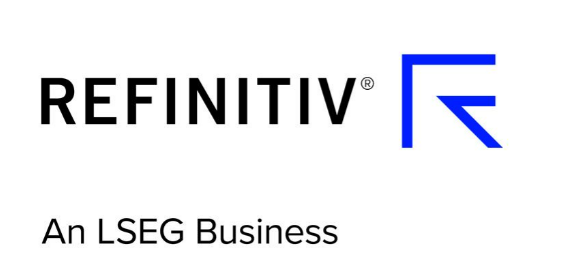Share buybacks put pressure on future dividends, says income manager
More buybacks mean less dividend growth, Rathbones’ Dobbie explains.
- Matteo Anelli
- 4 min reading time

Source: Trustnet
Investors should be prepared for lower dividend growth and special payouts as companies re-direct their leftover capital towards buybacks instead.
Heftier buyback programmes such as the ones UK companies have been carrying out logically result in dividend slowdowns, said Alan Dobbie, co-manager of the Rathbone Income fund.
That’s because when a company chooses to buy back its own shares, the money that it employs to do so cannot go towards special dividend payments or towards increasing the ordinary dividend.
“Companies do have to invest for growth, you can’t just buy back yourself to greatness. But given how cheap so many UK stocks are, it's good that UK boards are thinking about this. Buybacks have had a bad reputation in financial markets but they can make a lot of sense now,” he said.
“However, as a consequence, we’re not seeing the growth in ordinary dividends that we would have done if it wasn’t for share buybacks. They can be a sensible use of capital, but they do add additional pressure on dividends.”
Three things affect the level of dividends, according to Dobbie: the board's confidence in the economic outlook, the dollar-sterling exchange rate, which makes a big difference because many UK companies declare their dividends in dollars, and buybacks.
Since 2020, all three have impacted the UK market, with a sluggish economic outlook, the dollar strengthening and making “quite a big difference” to UK income fund dividend growth, and companies starting to use buybacks “a lot more and quite opportunistically”.
In the past four years, Natwest has reduced its share count by over 20%, and Shell and BP also came close to that figure. The trend is spreading to mid-cap stocks as well, with financial services company IG Group buying back 7.5% of its stock.
“You can calculate a theoretical return on a buyback. For a company like IG Group it's over 20%, so that would be the hurdle rate for any other investment projects they may have,” the manager explained.
“To the management team there, that's a really good use of excess cash, and the question they ask is not ‘why would we do that?’ but ‘why wouldn't we?’”
Dobbie believes that buybacks will continue and could be a potential catalyst to revive the UK market.
“It may be buybacks, it may be mergers and acquisitions that turn things around, or something else entirely. But the much awaited UK comeback might also have already happened – the macroeconomic picture is improving, it looks like we're out of recession, wage growth is at 6% and inflation 3.4%.
“Nobody's going to be waving a flag saying ‘the UK market is now the greatest investment opportunity’ and everybody is going to pile in all at once. It's just a subtle shade less black than the day before and we're more likely to look back in six months or two years’ time and note that the UK has outperformed. At that point, it could be too late already, because things can be quite violent when they turn,” he concluded.
Luckily for income investors, UK dividends don’t seem destined to plummet, despite the uptick in share buybacks.
The latest Computershare Dividend Monitor released last week found the dividends market “healthy but unexciting”, with growth remaining steady at 2% in the first quarter of 2024. The expectation for 2024 is a 1.5% year-on-year increase in regular dividends.
JOHCM UK Equity Income manager James Lowen argued that the impact of buybacks on dividend growth will only be of a short-term nature, with positive repercussions in the long term.
“Over the long term, the anticipated effect is to amplify dividend growth, as there will be fewer shares in issue for a set amount of dividend to be spread across. This is a powerful second derivative effect of buybacks for long-term dividend growth, which we see in numerous stocks,” he said.
“Fund dividend forecasts incorporate a shift towards lower dividends and increased buybacks from 2024, signifying a short-term dip but projecting higher returns in the medium term.”
Important legal information
The Lloyds Bank Direct Investments Service is operated by Halifax Share Dealing Limited. Registered Office: Trinity Road, Halifax, West Yorkshire, HX1 2RG. Registered in England and Wales no. 3195646. Halifax Share Dealing Limited is authorised and regulated by the Financial Conduct Authority, 12 Endeavour Square, London, E20 1JN under registration number 183332. A Member of the London Stock Exchange and an HM Revenue & Customs Approved ISA Manager.

The information contained within this website is provided by Allfunds Digital, S.L.U. acting through its business division Digital Look Ltd unless otherwise stated. The information is not intended to be advice or a recommendation to buy, sell or hold any of the shares, companies or investment vehicles mentioned, nor is it information meant to be a research recommendation. This is a solution powered by Allfunds Digital, S.L.U. acting through its business division Digital Look Ltd incorporating their prices, data news, charts, fundamentals and investor tools on this site. Terms and conditions apply. Prices and trades are provided by Allfunds Digital, S.L.U. acting through its business division Digital Look Ltd and are delayed by at least 15 minutes.

Data provided by FE fundinfo. Care has been taken to ensure that the information is correct, but FE fundinfo neither warrants, represents nor guarantees the contents of information, nor does it accept any responsibility for errors, inaccuracies, omissions or any inconsistencies herein. Past performance does not predict future performance, it should not be the main or sole reason for making an investment decision. The value of investments and any income from them can fall as well as rise.

© 2024 Refinitiv, an LSEG business. All rights reserved.



